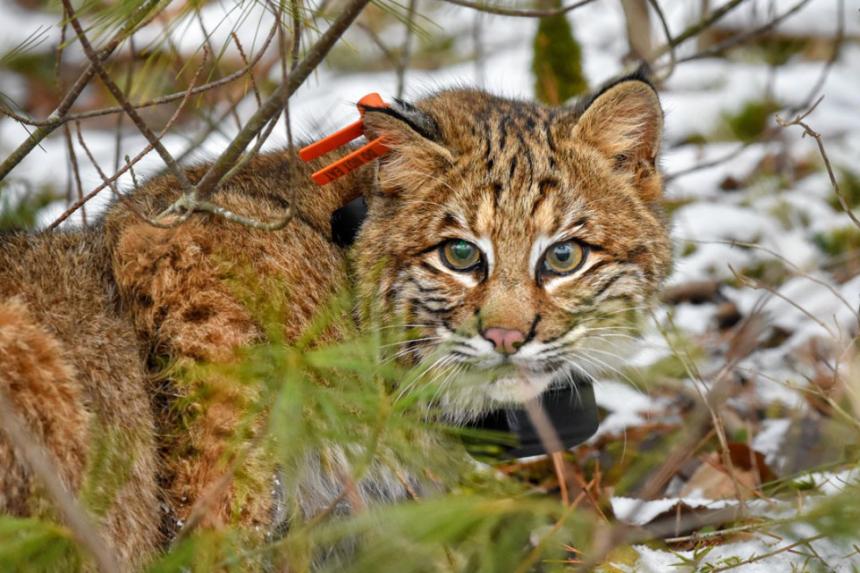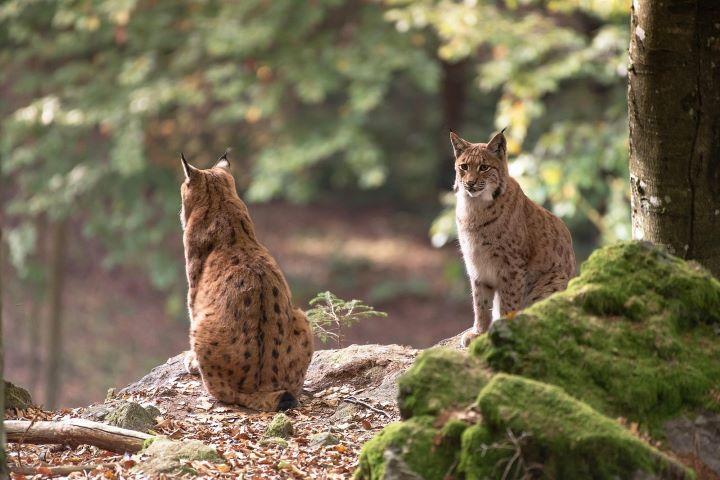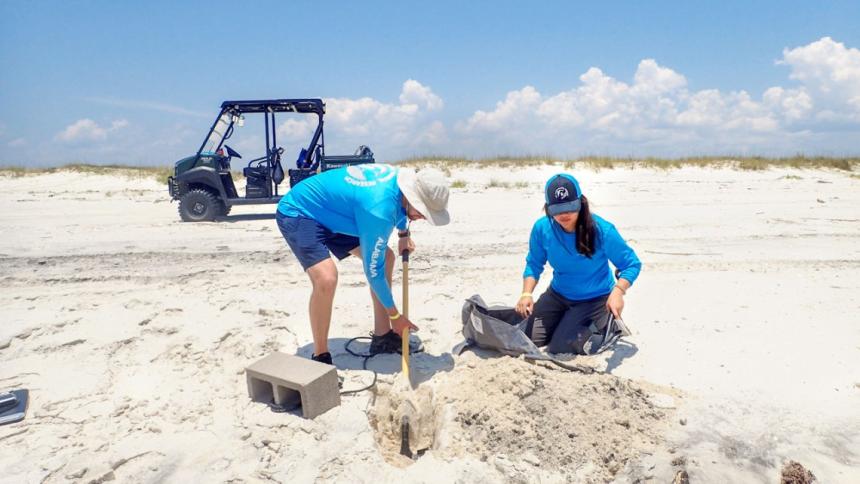In the News

September 15, 2025
Why are eastern rockhopper penguin populations plummeting in New Zealand? What’s a reliable, rapid test for detecting rodenticide poisoning in live birds of prey? How can we use technology to help diagnose wildlife diseases in Nepal while training local scientists?

June 24, 2025
Cornell Atkinson has awarded six new Academic Venture Fund projects to drive bold, interdisciplinary research tackling global sustainability challenges, including one focused on highly pathogenic avian influenza transmission chains between wildlife and livestock.

April 17, 2025
Avian influenza – which has devastated poultry flocks, wildlife populations and increasingly poses a public health risk – has now been confirmed in wild bobcats in New York state, according to a new study by Cornell scientists.

For Your Information
March 26, 2025
A recent study by Cornell researchers assessed the presence of antibodies for highly pathogenic H5N1 influenza A in live-captured bobcats in New York.

February 21, 2025
At Cornell University’s Wildlife Health Lab, scientists work with New York State to test and identify cases of bird flu among animals in Central New York. Interviewed as an expert in the field, Dr. Jennifer Bloodgood speaks on the latest findings.

October 07, 2024
Growing pressures on the environment are increasing needs and work opportunities for veterinarians in wildlife conservation. A gift of $35 million received by the Cornell University College of Veterinary Medicine — the largest in the school's history — will help fund activities of its wildlife health center into the future.

September 27, 2024
Better surveillance of marine mammals that wash up on beaches and in marshes will provide more accurate estimates of how many individuals of many species are dying and the causes of those deaths, according to a new study co-authored by Cornell's Dr. Jennifer Bloodgood.
Blog
August 19, 2024
Serving as the veterinarian for the CWHL keeps me on my toes, and July has been no exception! On a given day, I might be coordinating with our DEC or regional partners, working on a paper or grant, giving a presentation, mentoring interns or students, and/or working out in the “field” on a wildlife health project....
Blog
April 24, 2024
As a former undergraduate researcher and now postgraduate research technician with the Cornell Wildlife Health Lab, I have mostly worked on a study of environmental contaminants in hunter-harvested waterfowl....

Blog
February 23, 2024
Have you ever wondered about the journeys taken by certain wildlife veterinarians to get to where they are today? Recently, I had the privilege of chatting with Dr. Jennifer Bloodgood over coffee to delve into this very topic....
